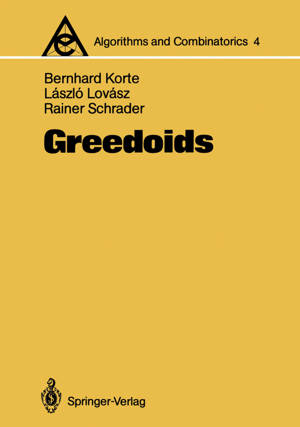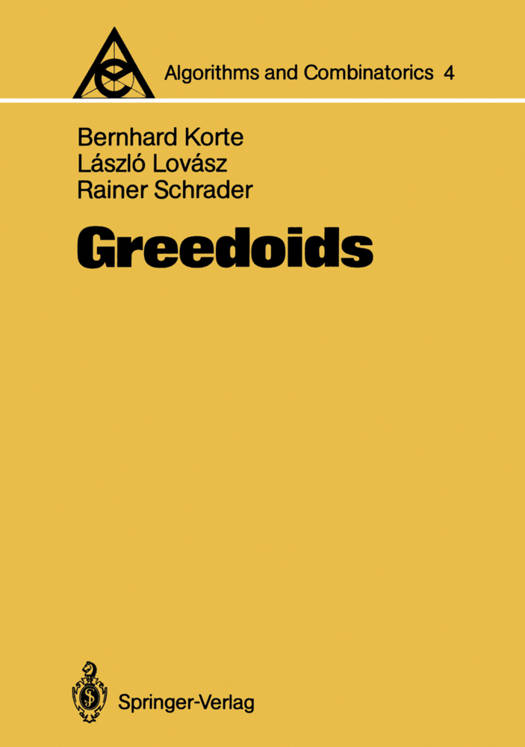
- Afhalen na 1 uur in een winkel met voorraad
- Gratis thuislevering in België vanaf € 30
- Ruim aanbod met 7 miljoen producten
- Afhalen na 1 uur in een winkel met voorraad
- Gratis thuislevering in België vanaf € 30
- Ruim aanbod met 7 miljoen producten
Zoeken
Omschrijving
Oh cieca cupidigia, oh ira folie, Che si ci sproni nella vita corta, E nell' eterna poi si mal c'immolle! o blind greediness and foolish rage, That in our fleeting life so goads us on And plunges us in boiling blood for ever! Dante, The Divine Comedy Inferno, XII, 17, 49/51. On an afternoon hike during the second Oberwolfach conference on Mathematical Programming in January 1981, two of the authors of this book discussed a paper by another two of the authors (Korte and Schrader [1981]) on approximation schemes for optimization problems over independence systems and matroids. They had noticed that in many proofs the hereditary property of independence systems and matroids is not needed: it is not required that every subset of a feasible set is again feasible. A much weaker property is sufficient, namely that every feasible set of cardinality k contains (at least) one feasible subset of cardinality k - 1. We called this property accessibility, and that was the starting point of our investigations on greedoids.
Specificaties
Betrokkenen
- Auteur(s):
- Uitgeverij:
Inhoud
- Aantal bladzijden:
- 214
- Taal:
- Engels
- Reeks:
- Reeksnummer:
- nr. 4
Eigenschappen
- Productcode (EAN):
- 9783642634994
- Verschijningsdatum:
- 18/10/2012
- Uitvoering:
- Paperback
- Formaat:
- Trade paperback (VS)
- Afmetingen:
- 170 mm x 244 mm
- Gewicht:
- 367 g

Alleen bij Standaard Boekhandel
+ 191 punten op je klantenkaart van Standaard Boekhandel
Beoordelingen
We publiceren alleen reviews die voldoen aan de voorwaarden voor reviews. Bekijk onze voorwaarden voor reviews.








